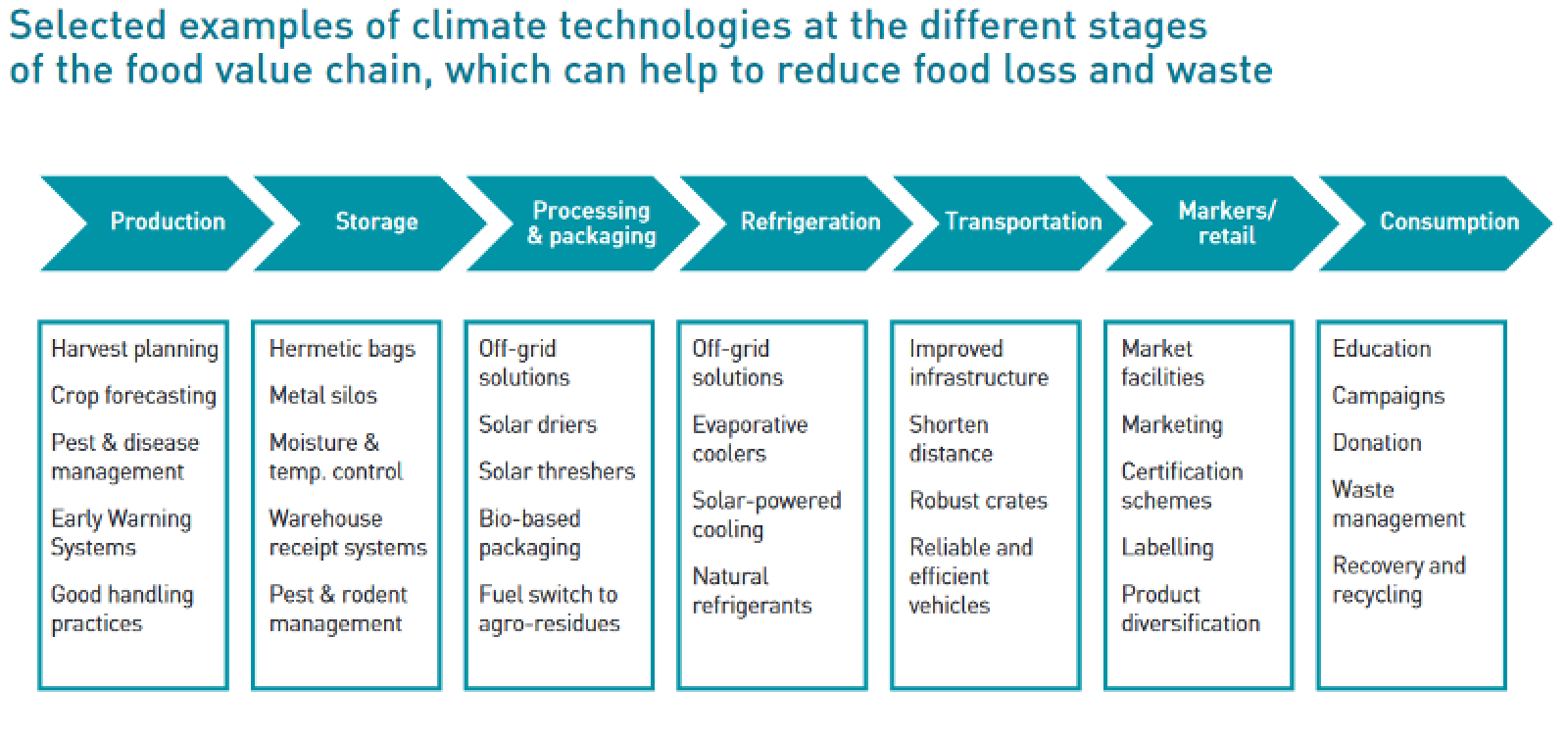Food loss and waste represent a significant contributor to climate change is a considerable issue in the context of climate change: about 8 percent of global anthropogenic GHG emissions.
Food losses could further increase due to more frequent and intense climate variability and associated outbreaks of pests and diseases. As more countries reach middle-income status, changes in consumer behaviour are expected to lead to an increase in the per capita amount of food wasted at consumption level.
Responding to the food loss and waste challenge presents a cross-cutting opportunity to drive climate action forward by cutting GHG emissions and boosting resilience and productivity in food systems. In addition, reducing food loss and waste through the deployment of climate technologies along the value chain offers an important pathway to enhance the mitigation and adaptation potential and to mobilize climate finance to fund investment costs.
The technologies and interventions needed to reduce food loss and waste during post-harvest activities (e.g. for storage, processing and refrigeration) have been specified as priorities in multiple Intended Nationally Determined Contributions (INDCs) submitted by developing countries.
Developing countries in particular will require support to enhance their institutional, financial, organizational and technical capacities in addressing food loss and waste and their underlying causes, in ways that can accelerate climate action.
This paper aims to inform on the interrelationship between food loss and waste and climate change. In this context, the paper highlights the related impacts, and outlines the recent global frameworks adopted by the international community, and how they have been translated into national priorities and targets. Climate technology options are explored, along with the challenges and opportunities related to financing needs. Finally, this paper will identify ways and enabling factors to reduce food loss and waste as part of the collective effort to enhance ambition for climate action while simultaneously delivering the other objectives of the sustainable development agenda.

| Year of publication | |
| Publisher | FAO |
| Geographic coverage | Global |
| Originally published | 08 Oct 2021 |
| Knowledge service | Metadata | Global Food and Nutrition Security | Climate extremes and food securitySustainable Food Systems | Food loss and wasteFood processingFood supply chainPost-harvest losses |
| Digital Europa Thesaurus (DET) | climate changefood securityvalue chainsustainable developmentdeveloping countriesagri-food technologyclean technology |
